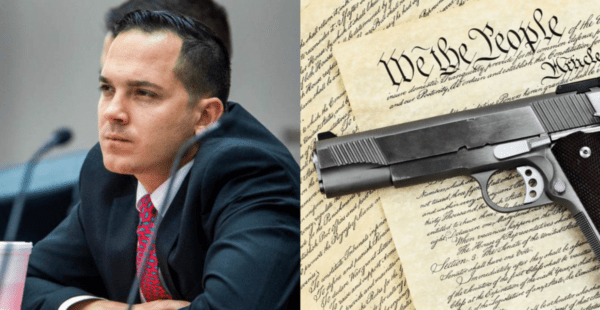
Florida State Rep Anthony Sabatini has filed a memo that would recognise the whole of the Sunshine State as a Second Amendment Sanctuary.
Sabatini filed House Memo 1135 on Friday, which would ask Congress to recognise Florida as a Second Amendment Sanctuary State, in a shot back against federal demands to infringe on firearm rights. The memo notes that there are a number of legislative proposals currently in Congress “that would, if enacted into law, infringe upon the firearm rights of Floridians to own firearms under the State and Federal Constitutions.”
As a result, Sabatini’s memo demands that not only Congress recognise the status of Florida as a Second Amendment Sanctuary State, but that Congress and federal agencies should “vigilantly preserve and protect [the Second Amendment rights of Floridians] by rejecting any provision, law, or regulation, that may infringe” those rights.
“Florida is the nation’s beacon of Freedom,” Sabatini wrote on Twitter, “and no state or local official should adminster any unconstitutional law.”
Today I filed House Memorial 1135, which instructs Congress to recognize Florida as a Second-Amendment Sanctuary State. Florida is the nation’s beacon of Freedom—and no state or local official should administer any unconstitutional law. pic.twitter.com/K9J3b2o9RZ
— Rep. Anthony Sabatini (@AnthonySabatini) February 19, 2021
The memo to recognise Florida as a Second Amendment Sanctuary State would make Florida the 5th state in America to be recognised as such. During President Obama’s time in office, Alaska, Idaho, Kansas, and Wyoming, introduced various pieces of legislation that would protect citizens from being subject to federal firearm regulations, by a lack of enforcement at the state level.
At the local level, 41 out of Florida’s 67 counties have also enacted either Second Amendment Sanctuary or pro-2A resolutions. In 2013, all 67 Florida Sheriffs signed a pledge, refusing to enforce any laws that would violate the Constitution “or infringe on the rights of the people to own firearms,” the first state to do so.
The language of “sanctuary” is a reference to the so-called “Sanctuary Cities” that popped up in the last decade, where local law enforcement would refuse to enforce federal immigration law, often leading to spikes in crime across the cities and counties that decided to adopt such resolutions.